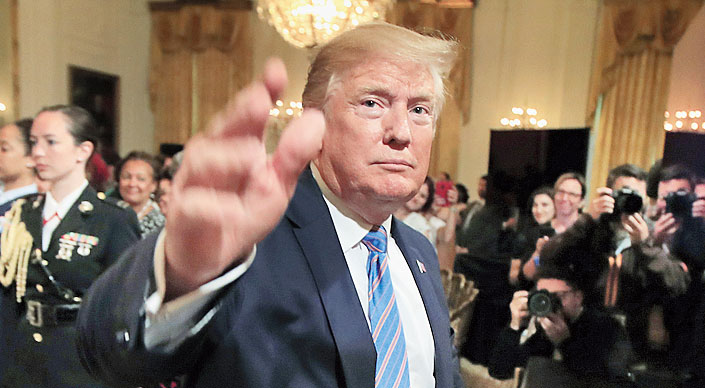The Trump administration’s restrictive immigration policies have led to massive increase in the rejection of petitions for H-1B visas with the highest denial rate among major Indian IT companies, according to a study by an American think-tank.
The National Foundation for American Policy study, based on data from the US Citizenship and Immigration Services (USCIS), showed that denial rates for H-1B petitions, popular among Indian IT professionals, have quadrupled from just six per cent in 2015 to 24 per cent in the third quarter of the current fiscal.
The H-1B is a non-immigrant visa that allows US companies to employ foreign workers in speciality occupations that require theoretical or technical expertise. The technology companies depend on it to hire tens of thousands of employees each year from countries like India and China.
The study reflects that the denial rate for H-1B visas is highest among major Indian IT companies, giving credence to charges that Indian companies are being unduly targeted by the administration of President Donald Trump.
For instance, the denial rate of H-1B petitions for initial employment for Amazon, Microsoft, Intel and Google in 2015 was just one per cent. In 2019, the same increased respectively to six, eight, seven and three per cent. The denial rate for Apple remained the same at two per cent.
During the same period, the denial rate jumped from four per cent to 41 per cent for Tech Mahindra, from six per cent to 34 per cent for Tata Consultancy Services, from seven per cent to 53 per cent for Wipro and from just two per cent to 45 per cent for Infosys, the study showed.
At least 12 companies that provide professional or IT services to other US companies, including Accenture, Capgemini and others, had denial rates of over 30 per cent through the first three quarters of fiscal 2019. Most of these companies had denial rates between two per cent and seven per cent as recently as in 2015, it said.
The denial rate for H-1B petitions for continuing employment was also high for Indian IT companies. For Tech Mahindra, it increased from two per cent to 16 per cent during the same period, while for Wipro it increased from four per cent to 19 per cent. Infosys registered a hike from one per cent to 29 per cent.
On the other hand, the denial rates for H-1B petitions for continuing employment among major American companies were low — Amazon (from one per cent to three per cent), Microsoft (remained at two per cent), Intel (from one per cent to three per cent), Apple (remained at one per cent) and for Google, it increased from 0.4 per cent in 2015 to one per cent in 2019.
Noting that between 2015 and 2019, the denial rate for new H-1B petitions for initial employment quadrupled from six to 24 per cent, the National Foundation for American Policy said to put this in perspective, between 2010 and 2015, the denial rate for “initial”
H-1B petitions never exceeded eight per cent, while today the rate is three times higher.











